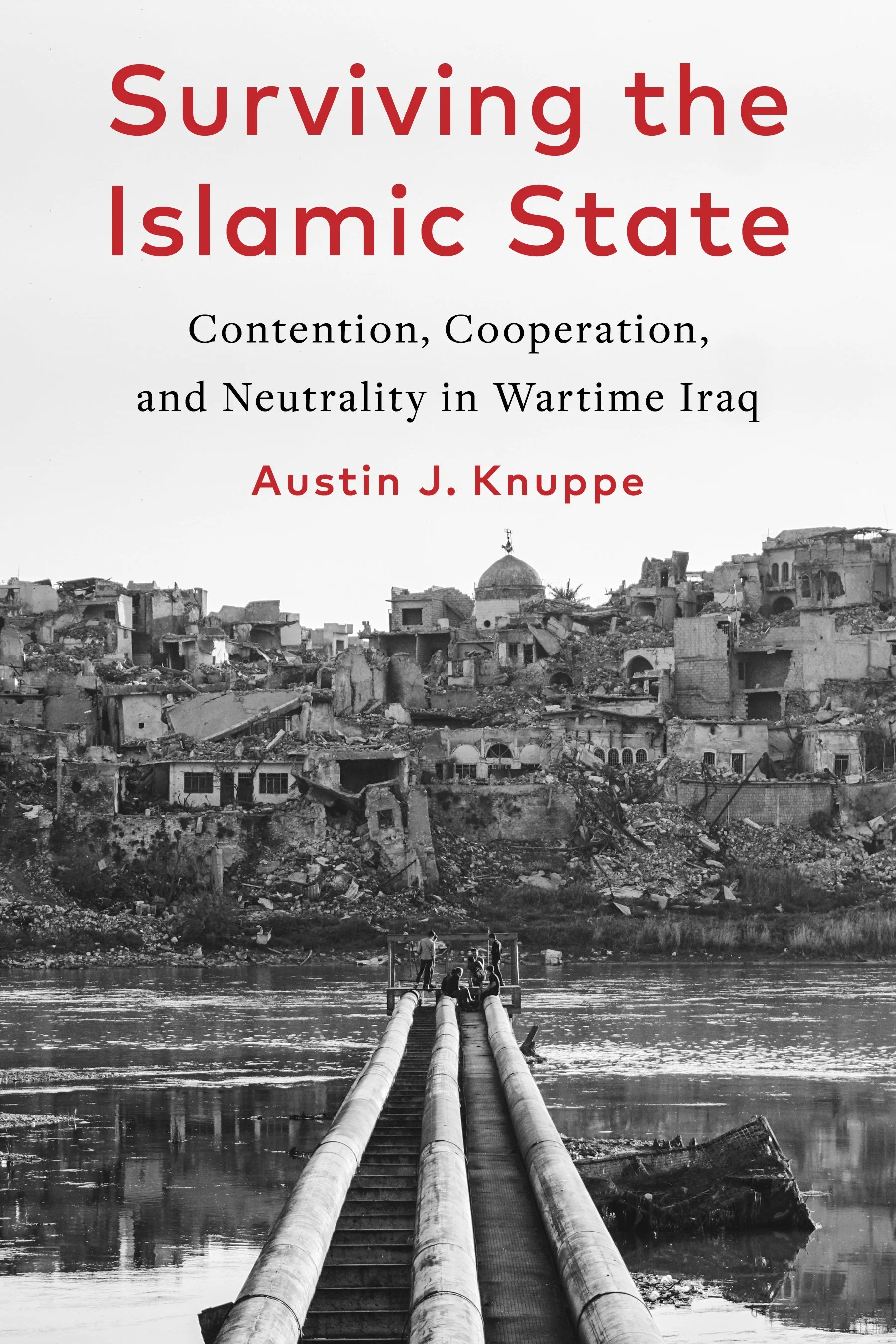Surviving the Islamic State:
Contention, Cooperation, and Neutrality in Wartime Iraq
(Columbia University Press, Studies in Middle East Politics, 2024)
Book Presentation at the Heravi Peace Institute on October 30, 2024
How do ordinary people survive wartime violence when it arrives in their neighborhood? When confronted with the threat of violence, how do individuals decide whether to stay in their homes or flee? For those who stay, what factors determine whether individuals cooperate or contend with insurgent governance?
Since the US-led invasion in March 2003, Iraqis from different walks of life confronted existential decisions about how to survive political violence. Despite facing similar threats and limited resources, some people fled their homes while others remained. Among those who stayed, most hid, others resisted, some remained nonaligned, and a select few collaborated.
I explore how Iraqis survived the Islamic State by drawing on original evidence from the field. First, I enumerated a survey of Baghdad residents at the end of the anti-IS campaign in November 2017. Second, I traveled to Iraqi Kurdistan to interview over three dozen peacebuilders, community elites, and members of various security forces from nine different communities. Third, I conduct a quantitative analysis of UN migration data in order to understand broader patterns of forced displacement and refugee resettlement. Understood as a whole, these data give voice to ordinary Iraqis who were forced to make hard choices during times of intense danger and uncertainty.
To make sense of these rich data, I develop a novel theoretical framework for understanding wartime survival. Existing accounts either overstate the importance of social identity or ignore it altogether by reducing survival to cost-benefit calculations. Against the conventional wisdom, I argue that individuals survive conflict by drawing on repertoires—consisting of practices, tools, organized routines, symbols, and rhetorical strategies—to navigate violent situations. Distinct from deliberate calculations or rational strategies, repertoires are creative, flexible, and often contradictory. Most importantly, survival repertoires provide a means of coping with the inherent stress, uncertainty, and volatility of war.
The book’s multi-method research design allows me to explore evidence from specific communities while also generalizing to common survival trends across Iraq at various stages of the conflict. I find that Iraqis belonging to communities with limited cohesion and capacity survived by fleeing to safer areas under the protection of rival security providers. For those who stayed, the ability of communities to pursue cooperation, contention, or neutrality depended not only on the cohesion and capacity of the community, but also the resolve and combat effectiveness of the anti-IS coalition. While some communities welcomed liberation, others remained suspicious of coalition forces given past experiences of victimization and exploitation by the Iraqi Security Forces and pro-government militias.
Replication materials for the survey and key informant interviews are available here. Please email the author for related requests.
